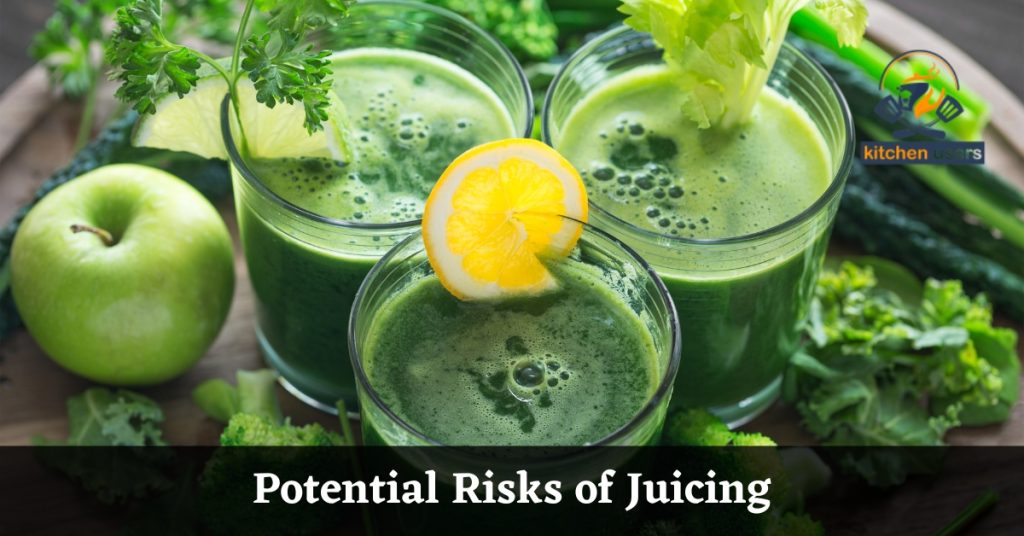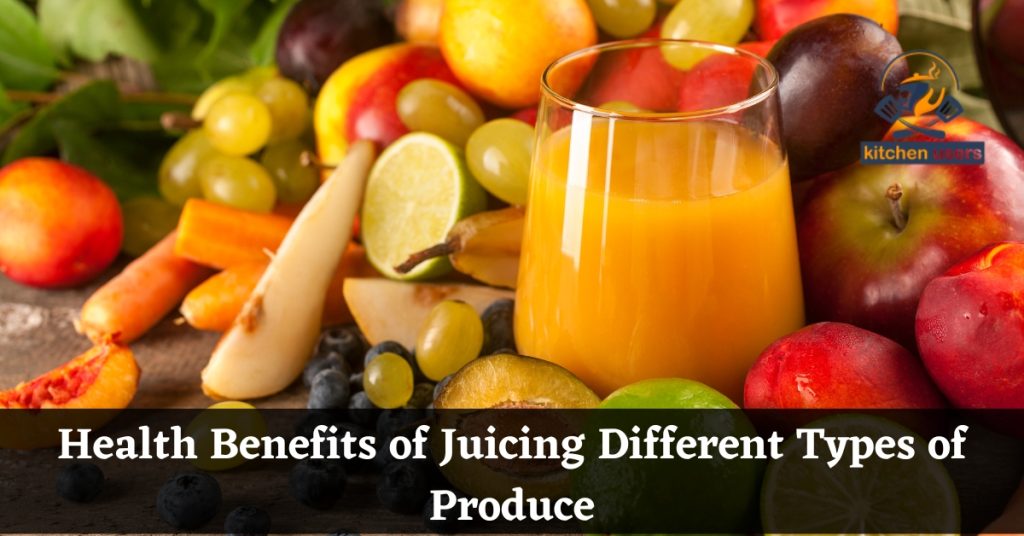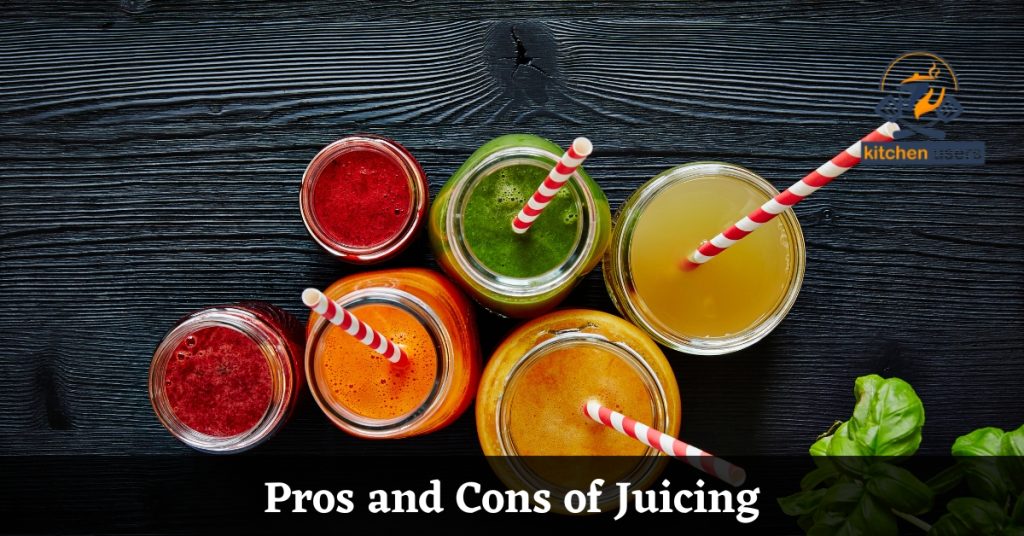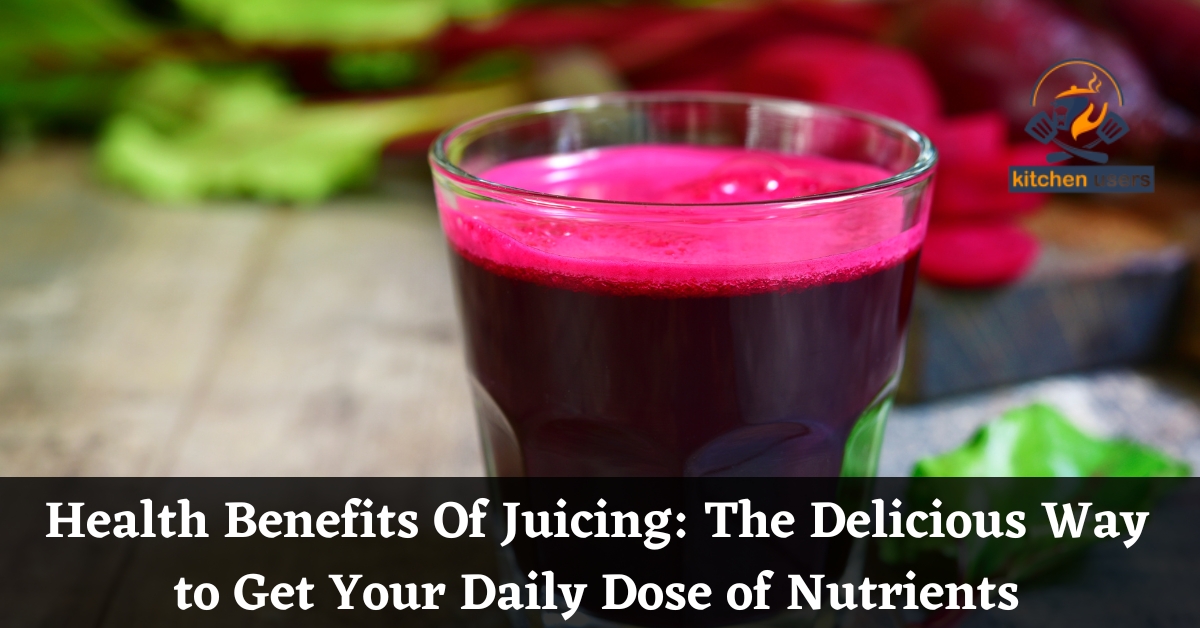In the fast-paced world of health and diet, where every choice counts, juicing has become the most popular thing to do. It’s the art of making juice from fruits and veggies, and it’s getting a lot of attention as people look for easy ways to improve their health. Juicing is not just a fad; it’s a tasty way to improve your health.
Now, let’s sprinkle in some statistics:
According to a study released in the “Journal of Nutrition and Metabolism,” juicing is a powerful way to get more vitamins and minerals.
The Centers for Disease Control and Prevention (CDC) says you should eat a range of fruits and veggies daily, and juicing is an easy way to do this.
A recent study found that over 70% of people who juiced as part of their daily routine felt more energy and had better digestion.
But this isn’t the end of our journey. It’s about learning more about how juice can help your health. We’ll investigate its science and discover how these colorful elixirs can improve your health and give you more energy.
But, like any trip, there are turns and twists. We’ll also talk about the possible risks and downsides of juicing so that you have a full map for your journey.
So, whether you’re a health expert or want to know what all the fuss is about, this article is your guide. By the end, you’ll know everything there is to know about the science and art of juicing. It’s more than just a glass of drink; it’s your way to good health and energy. Welcome to the world of juicing, where every sip brings you closer to being healthy and energized.
First, I’m going to talk about the 8 Health Benefits of Juicing.
8 Nutritional Benefits Of Juicing
Juicing is the process of extracting liquid or juice from fruits and vegetables. It has become popular in recent years. As people look for ways to improve their health and nutrition. Juicing is an easy and convenient way to consume a variety of fruits.
Also, vegetables may otherwise be difficult to eat in their whole form. In this session, we will explore the benefits of juicing.
Juicing has become popular in recent years. Due to its many nutritional (juicer) benefits some juicers make make juicing.
Below are some of the key benefits of juicing:
Increased Nutrient Intake
Juicing involves extracting juice from fruits and vegetables. That is a concentrated source of nutrients. By juicing, you can consume a larger quantity of fruits and vegetables in one serving. Then you would eat for a whole day.
Delivery of Minerals and Vitamins to the Bloodstream
Drinking fresh juice allows for the quick absorption of nutrients into the bloodstream. Thus providing a rapid boost of energy and nourishment.
Neutralization of the Body’s pH
Many fruits and vegetables have an alkalizing effect on the body. That helps to neutralize the pH levels and reduce inflammation.
Potential Weight Loss
Juicing can aid in weight loss as it provides a low-calorie. And nutrient-dense options for meals and snacks. While also helping to reduce cravings for unhealthy food.
Increased Energy
Consuming nutrient-dense juice can provide a quick and sustained energy boost. Without the need for stimulants like caffeine.
Protection Against Disease
Juicing is a great way to consume a variety of antioxidants, which can help to protect. Against chronic diseases like cancer, heart disease, and diabetes.
Slows and in Some Cases Reverses Signs of Aging
The high levels of antioxidants and nutrients in fresh juice can help to slow down the aging process. And in some cases reverse signs of aging like wrinkles and dull skin.
Detoxifies the Body
Juicing can help to drop toxins from the body. Then support liver function, and promote healthy digestion. In general, the addition of squeezed juice to your daily food intake. This can affect your health and wellness.
Next, I’ll talk about the possible risks of juicing.
Potential Risks of Juicing

Juicing can have potential risks if not done properly. Some of these risks include consuming too many calories. You have to consume too much sugar, and lacking fiber and protein in your diet.
Consuming too many calories can happen when juicing. As fruits and vegetables contain natural sugars and carbohydrates. It’s important to be mindful of part sizes and balance your juice intake. With other whole foods avoid consuming excess calories.
Another risk is consuming too much sugar, which can lead to increased blood sugar levels. This contributes to health issues such as diabetes and obesity. Juicing with high-sugar fruits can lead to a spike in blood sugar levels. If not balanced with lower-sugar vegetables like kale or spinach.
Lastly, juicing removes the fiber and some of the protein from fruits and vegetables. This can leave you feeling less full and satisfied compared to eating whole foods. It’s important to incorporate whole foods into your diet.
As well as to ensure you’re getting a balanced intake of fiber. Also protein, and other essential nutrients. We have discussed Are Toaster Ovens Toxic in another post.
The next topic I’m going to discuss is juicing vs eating fruits and vegetables in their whole forms.
Juicing vs. Eating Whole Fruits or Vegetables
When it comes to the health benefits of juicing. There are some important considerations to keep in mind. One of the biggest questions people have is whether you can absorb more nutrients from the juice. Then you can from whole fruits or vegetables.
While it’s true that juicing can make certain nutrients more accessible to your body. It’s important to note that you may also be missing out on important components like fiber.
Another popular claim about juicing is that it can help to cleanse your body. While juicing can be helpful for the body’s natural detoxification processes. It’s not a magic solution for detoxification. Your liver and kidneys are responsible for filtering toxins from your body. And juicing alone is not enough to support these organs.
It’s worth considering whether bottled and fresh juice offer the same health benefits. While bottled juice can be a convenient option for those on the go. It’s important to check the label for added sugars and other additives.
Made juice, but, may offer more nutritional benefits. Because it hasn’t been processed and stripped of its natural nutrients. We have discussed Best Blender For Bariatric Patients in another post.
The health advantages of juicing various kinds of fruits and vegetables will be discussed in the following section.
Health Benefits of Juicing Different Types of Produce

Juicing is a great way to consume a variety of fruits and vegetables. Each with its own unique health benefits.
Here are some of the health benefits of juicing different types of produce:
Celery
Celery is rich in antioxidants and contains anti-inflammatory properties. Making it great for reducing inflammation in the body. It also helps lower blood pressure and can aid in digestion.
Beets
Beets are packed with nutrients like iron, potassium, and folate. Making them great for improving cardiovascular health and boosting energy. They also contain betalains, which have anti-inflammatory and antioxidant properties.
Ginger
Ginger has anti-inflammatory properties. It can help with digestion, nausea, and reducing muscle pain. It is also high in antioxidants and has been shown to have anti-cancer properties.
Carrots
Carrots are rich in beta-carotene, which is converted into vitamin A in the body. Vitamin A is important for eye health. And carrots have also been shown to improve skin health and boost the immune system.
Apple
Juicing apples can provide health advantages. Due to their rich content of antioxidants and polyphenols. Which have been linked to the potential reduction of chronic conditions. Such as cancer and diabetes. They also contain soluble fiber. Which can aid in digestion and help regulate blood sugar levels.
Cucumbers
Cucumbers have a high water content and a low calorie count. Making them an excellent option for hydration purposes. They also contain antioxidants and anti-inflammatory properties. That can help reduce the risk of chronic diseases.
Kale
Kale is a superfood packed with nutrients like vitamins A, C, and K, as well as iron and calcium. It has anti-inflammatory and antioxidant properties. And has been shown to reduce the risk of chronic diseases.
Spinach
Spinach is another superfood. It is packed with nutrients like iron and calcium. It has been shown to improve heart health and reduce the risk of chronic diseases.
Parsley
Parsley is high in vitamins A, C, and K, as well as folate and iron. It has anti-inflammatory properties. And can help improve digestion and reduce bloating.
Oranges
Oranges are high in vitamin C. That is important for immune function and skin health. They also contain antioxidants. They have been shown to reduce inflammation in the body.
Juicing a variety of fruits and vegetables can provide a multitude of health benefits. From reducing inflammation to boosting immune function. And reducing the risk of chronic diseases.
Following that, I will discuss the benefits and drawbacks of juicing.
Pros and Cons of Juicing

Juicing has become increasingly popular as a way to get more nutrients into the body. In contrast, there are certainly benefits to consuming juice. It’s important to weigh the pros and cons.
One of the main health claims of juicing is that. It can help you absorb more nutrients from fruits and vegetables. While this is true to some extent. It’s important to remember that juicing removes the fiber from the produce. It can have negative effects on blood sugar levels and digestion.
Additionally, juicing can leave you feeling hungry due to the lack of fiber and protein. Blending, but, retains the fiber and can help keep you feeling fuller for longer.
It’s also important to go big on vegetables when juicing. As they provide the most nutritional benefit. It is crucial to limit the consumption of fruits. Because they may contain excessive amounts of sugar and calories.
While juicing can have some health benefits. It’s important to weigh the pros and cons and make sure it fits into a balanced and nutritious diet.
Following that, I will discuss some often asked questions on the health advantages of juicing.
FAQs on Health Benefits Of Juicing
What Are The 5 Benefits Of Juicing?
The five main benefits of juicing is improved nutrient absorption. Reduced inflammation boosted immune function. Also improves digestive health, and reduced the risk of chronic diseases.
Which Fruits And Vegetables Are Best For Juicing?
Fruits and vegetables are high in nutrients like vitamins A, C, and K and minerals like iron. You know, calcium is the best for juicing, examples include carrots, apples, cucumber, kale, spinach, parsley, and orange.
Is It Good To Juice Every Day?
It’s generally not recommended to juice every day. As it can cause an imbalance in your diet. It’s best to drink freshly pressed juice occasionally. It makes sure to include other sources of vitamins and minerals.
Additionally, it’s important to consume whole fruit. Or vegetables to ensure you get the fiber, protein, and other nutrients.
Are There Health Benefits To Juicing?
Yes, there are health benefits to juicing. Juicing can help improve nutrient absorption. Reduce inflammation, boost immune function, and reduce the risk of chronic diseases. It’s important to remember that it should be done in moderation. And include a variety of fruits and vegetables for the most benefit.
What Are The Pros And Cons Of Juicing?
The pros of juicing include improved nutrient absorption and reduced inflammation. And boosted immune function. The cons of juicing include a lack of fiber and protein. The potential for an imbalance in your diet and the risk of consuming too much sugar or calories.
If you are not careful with the types of fruits and vegetables you juice. It’s important to weigh the pros and cons. And make sure it fits into a balanced and nutritious diet. We have talked about How To Clean Kuvings Slow Juicer in another post.
Health Benefits Of Juicing a video
Now come to the final recommendations.
Final Say
Juicing can offer a range of health benefits. From improved nutrient absorption and reduced inflammation to boosted immune function. And reducing the risk of chronic diseases. But it’s important to remember that juicing should be done in moderation. Include a variety of fruits and vegetables for the most benefit. Additionally, it’s important to consume whole fruit or vegetable.
To ensure you get the fiber, protein, and other nutrients. Juicing can be a great way to supplement your diet with fresh produce. But it shouldn’t replace eating whole fruits and vegetables. Hope you understand health benefits of juicing in this post.
As a 10 years veteran in the culinary industry, I have developed a passion for all things kitchen. With a deep understanding of food preparation and cooking techniques, I am a true kitchen specialist. My experience working in Khedmot kitchen has allowed me to hone my skills and become an expert in creating delicious and visually appealing dishes.
I am a creative and innovative chef, constantly experimenting with new ingredients and cooking methods to bring unique and memorable dining experiences to my customers. In addition to my culinary expertise, I am also highly organized and able to effectively manage a team of kitchen staff, ensuring that all tasks are completed efficiently and to a high standard.
I am dedicated to my craft and always strive to create exceptional dining experiences for my customers. Whether it’s developing a new menu, training my kitchen team, or working with local suppliers, I am always looking for ways to improve and take my kitchen to the next level.
If you’re looking for a skilled and passionate kitchen specialist, look no further. I am eager to bring my expertise to your team and help take your kitchen to the next level.



3 thoughts on “Health Benefits Of Juicing-Simple Way to Get Daily Delicious Nutrients”